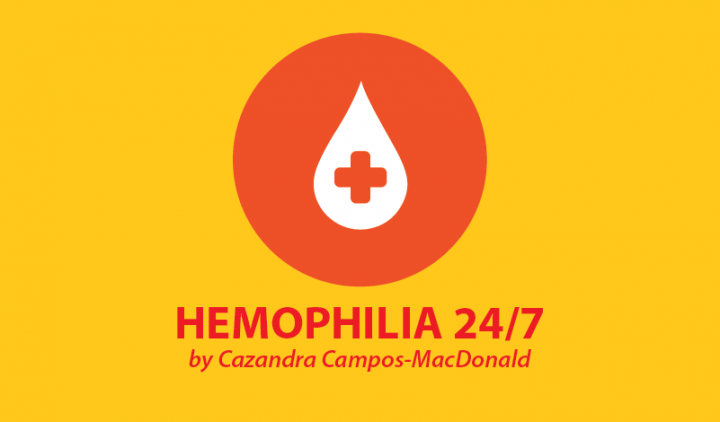Letting My Child Grow Up While Remaining His Advocate

I used to be great about determining if my now 14-year-old son Caeleb was having a bleed. Identifying the symptoms of a joint bleed was second nature to me. Swelling of the joint, warmth to the touch, redness in the area, and pain are a few of the telltale signs that a joint is bleeding.
Caeleb recently fell off his bike when his foot slipped and he lost his balance. He made it home sporting a nasty gash to the back of his ankle. The next morning, a bruise revealed black and purple colors at the base of his foot.
When I cleaned Caeleb’s wound, he was complaining of pain, and I immediately began to wonder if a bleed was occurring in his ankle. I also wondered why it is so much harder now for me to identify a bleed. I never questioned myself before. But now that he is older, I question myself each time he is in pain.
Caeleb is 5 feet, 9 inches tall and weighs over 150 pounds. His body is different than when he was 8. What I am learning is that the eye is not always the best identifier of a bleed. I asked Caeleb if he thought he was having a bleed, and he immediately told me he wasn’t.
As a parent and caregiver of a person with hemophilia, there is only so much I can do to help my child. When kids are young, parents need to be their eyes and ears because young children are unable to voice when they are in pain. As they get older, they begin to develop the language needed to communicate when something is wrong.
Helping them identify the difference between a bleed and an ache is not easy, but once it is learned, the care for a child changes. They slowly begin to take charge of their bleeding disorder.
I must trust my son. He knows his body better than I do. When he was a baby, I knew every hair on his head and every blemish and bruise on his body, but time changes those things. Despite wanting to fix what is wrong, I am now in a place where I must give more control to him.
With his new medication, Caeleb has been fortunate to not have a bleed in a few years. This is amazing, yet it makes me nervous. I remember too well what those bad bleeds that landed him in the hospital were like. But as he gets older, he forgets those times.
I will always be my son’s strongest advocate. I will help him navigate the ups and downs of living with hemophilia. I will be there for him when he is in pain, and we work to find a way to get through the worst of his issues. Most importantly, I will let him go, little by little, so that he can make decisions for himself as he grows into a young adult.
***
Note: Hemophilia News Today is strictly a news and information website about the disease. It does not provide medical advice, diagnosis, or treatment. This content is not intended to be a substitute for professional medical advice, diagnosis, or treatment. Always seek the advice of your physician or another qualified health provider with any questions you may have regarding a medical condition. Never disregard professional medical advice or delay in seeking it because of something you have read on this website. The opinions expressed in this column are not those of Hemophilia News Today or its parent company, Bionews Services, and are intended to spark discussion about issues pertaining to hemophilia.







Leave a comment
Fill in the required fields to post. Your email address will not be published.